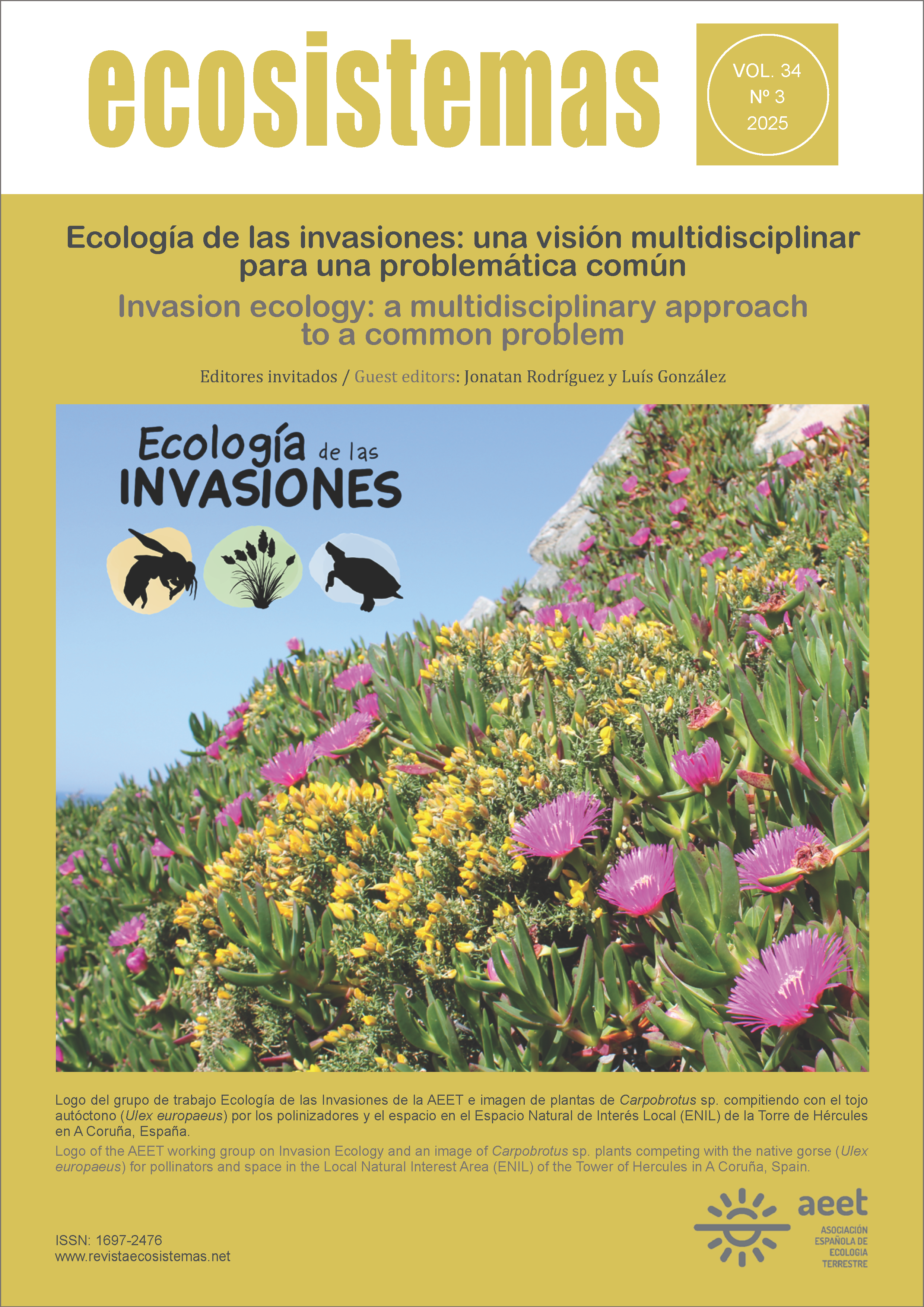Ten years of progress in research and management of biological invasions in Spain
Main Article Content
Abstract
A recent report by an international panel of experts reveals that the problem of invasive alien species (IAS) is worsening rather than improving: the rate of establishment of alien species continues to rise and IAS cause more negative than positive impacts on both nature and human well-being. This situation justifies revisiting the topic ten years after the publication of the first monograph on IAS in the journal Ecosistemas, to assess the progress made in Spain over the past decade. Scientific production has increased up to 2020/21 and stabilised since then, being intermediate with respect to other neighbouring countries. Legislative advances are reflected in the extension of the Spanish and European catalogues of IAS, and in the regulation of the first import of alien species. Our knowledge of the distribution of IAS has improved thanks to global databases, technological advances and the contribution of citizen science. The management of IAS in Spain depends on the Autonomous Communities, with great disparity of action among them. Experts highlight, as barriers to effective management, the lack of resources and scientific-technical knowledge of management methods, poor control of entry routes, lack of coordination between different management entities, and low public awareness of IAS risks. The main management costs are related to the control of established IAS, while very little funding is allocated to the prevention of future invasions or to early eradication measures. These limitations will have to be addressed in the future to tackle the problem of biological invasions in Spain more efficiently.
Downloads
Article Details

This work is licensed under a Creative Commons Attribution-NonCommercial 4.0 International License.
Accepted 2025-07-26
Published 2025-10-16

